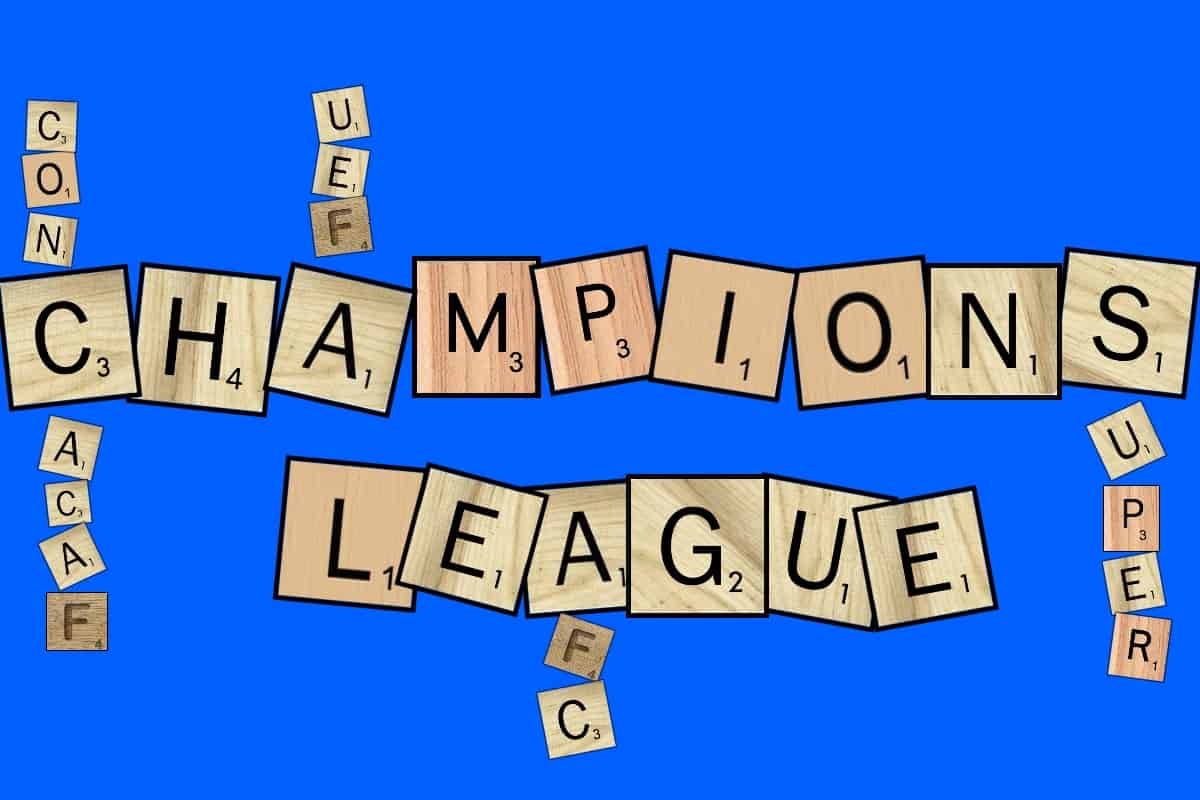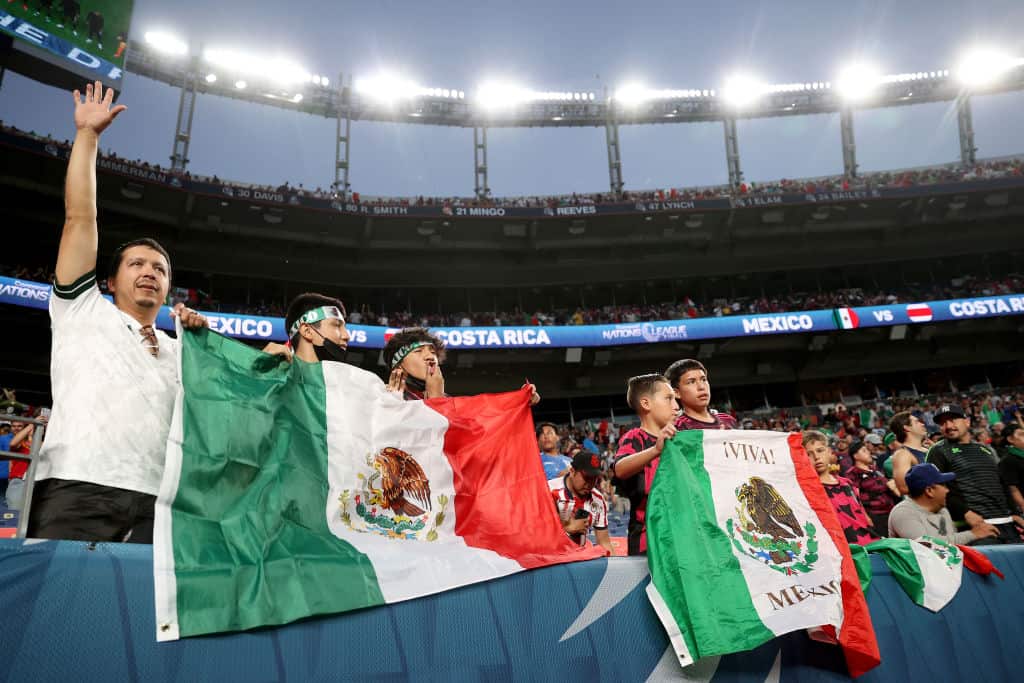
For the avid, experienced soccer fans, certain soccer league names are easy to remember.
For instance, everyone knows the traditional major five leagues in Europe. The Premier League, Bundesliga, LaLiga, Serie A and Ligue 1 feature the game’s biggest stars. Then, there are professional, semi-professional and amateur leagues trailing each of those five.
For example, look at England, which has 11 levels to its extensive league system. Not only are there 7,000 teams, but the leagues themselves can be confusing.
Just at the top, the Premier League holds the 20 best teams. The Championship, despite its name, is actually the second-best league. Then League One, which bears a strikingly English similarity to France’s Ligue Un, is actually the third tier.
Already, the issues in naming arise, and that is just between the big leagues in the biggest European nations. Moreover, this is simply domestic leagues.
The Champions League is the top intercontinental club competition. But, for which continent? Well, the beauty of naming is that five of the six FIFA confederations use the moniker Champions League for the intercontinental club competition. The lone exception is South America, which calls the competition the Copa Libertadores.
Still, UEFA, CONCACAF, CAF, AFC and OFC all use the Champions League. And, more or less, these competitions follow the same format. The top teams from the previous season enter a group stage before a knockout stage. Then, the winner of that competition qualifies for the FIFA Club World Cup.
Again, this is just one example of the alphabet soup of soccer league names throughout the world. There are certain benefits to these similarities. On one hand, we know the CAF Champions League bears similarities to the UEFA Champions League. However, if we say simply ‘Champions League’, confusion persists, even if the first thought is that of UEFA.
The world of soccer league names
Intended simplicity
There are, of course, reasons the major soccer governing bodies elect to use such similar names. At its core, it is to keep it simple.
For example, if someone in Spain hears about the DFL-Supercup in Germany, they will relate it to the Supercopa de España. Ergo, the best team in the league from the previous season plays the domestic cup champion. The same can be said of the Supercoppa Italiana.
Similarly, fans can understand, at least on surface level, what the CAF Champions League is if they only watch the UEFA Champions League. The best teams from domestic leagues across the continent play a tournament-style competition.
Even internationally, the same style of competitions with similar names prevail. The Nations League, which only started a handful of years ago, produces great moments. That is a dangerously vague sentence, as the Nations League now exists in CONCACAF for both men and women. Yet, we get it. It is a prolonged tournament between nations from the same confederation, just not as important as the main tournament from that confederation, which only lasts a month.
Still, soccer lives up to its billing as ‘the World’s Game’. The complexity of its competitions immerses fans to have content any time of any day, more or less. The avid soccer fans might stumble in their discussions due to the same-name dilemma. Simply asking “did you see that Champions League game last night?” can now be unclear.
How many Champions Leagues are there? 🤔
UEFA, Concacaf, AFC (Asian), CAF (Africa). Any others?
— World Soccer Talk (@worldsoccertalk) January 20, 2022
The same, but different
Fans love soccer because of the array of viewing possibilities. They can watch games in Europe, North America, South America, Asia, Africa and Australia no matter where they are.
But, here are a couple examples of where these fans could get mixed up due to soccer league names. Just looking at Europe, there are 21 first division leagues that operate with some iteration of ‘premier’. Based on the language in the country, it could be a different spelling or pronunciation. Also, some countries call its top flight the premier league, premiership, premier division. The combinations are bountiful.
The Premier League in England is likely the first thought in people’s head. But the Primeira Liga in Portugal, the Russian Premier League and those in Belarus, Kazakhstan, Azerbaijan, Bosnia and Herzegovina and others are the ‘Premier League’ of that country. Where the Scottish Premiership stands out almost alone, other leagues fall into the “premier division” category.
It’s one thing to have the same name, especially when it is premier league. After all, these are the premier clubs. However, the tiers of soccer, something unfamiliar thus far to American sports, causes more confusion.
The aforementioned League One versus Ligue Un dilemma stunts some. On one hand, Lionel Messi, Neymar and Kylian Mbappe terrorize defenses. The other league hosts Doncaster Rovers and Fleetwood Town. Remember, this is not a slight of the third tier in England. In fact, many argue that England boasts the deepest string of divisions in terms of talent. It is more a criticism of the organization.
Rather than using something as simple as numbers (division 1, division 2, etc.), descriptors jumble up understanding. This is notwithstanding the fact that the teams in the English Championship do not play to be champions of England.

Photo by Matthew Stockman/Getty Images
Club vs International level
If you ask any sensible person what the biggest sporting event in the world is, the majority of people would say the World Cup. And, of course by World Cup, it is the FIFA Men’s World Cup, which happens every four years. This is not to be confused with the FIFA Men’s Club World Cup. This tournament, while it does feature strong teams, pales in comparison to its international counterpart when it comes to prominence.
We already brought up the Nations League. This is a new tournament, at least it is at the end. The ‘group stage’ features two separate leagues. League A is the normal European favorites. For instance, Portugal and France, the only countries to win the competition. These two, as well as England, Spain and Italy play in League A. Smaller soccer nations, such as Romania, Israel or Finland play in League B.
It is not necessarily a “league” like we see in domestic countries. However, it does not hold the bearing of the other international tournaments. Also, there is a CONCACAF Nations League. The United States won the inaugural Nations League against Mexico.
One important thing to keep in mind is that, despite the CONCACAF and UEFA competitions holding the same sense of significance, the formats are somewhat different. Most people would look at CONCACAF as holding less notable nations. Fair enough, European nations take up eight of the top 10 FIFA World Rankings spots. The highest nation from CONCACAF is the United States at No. 11, followed closely by Mexico at No. 14.
Regardless, the CONCACAF Nations League features three ‘leagues’, which, again, are just names for group stages. These are not actual soccer league names, more so tournaments to draw viewers in.
Additionally, this does not include the CONCACAF’s Women’s Nations League, starting up in 2024.
Women’s game
The progressive nature of the sport promotes women’s soccer. This is especially true over the last 20 to 25 years.
Sticking to the United States, which leads the charge in terms of the women’s game’s development, a number of leagues have come and gone. The Women’s United Soccer Association (WUSA) lasted three seasons until dissolving in 2003. Women’s Professional Soccer (WPS) also lasted three seasons, dismantling in 2012. Since then, the National Women’s Soccer League (NWSL) emerged as one of the best women’s leagues worldwide.
The USL W-League, related to the men’s side of the USL, served as the development league under the top divisions that came and went.
It is hard to keep track of constant change. The NWSL only has 12 teams, but those clubs have the burden of delivering the best women’s soccer in the area.
Elsewhere, the rise of the women’s game is prominent in Europe. Even then, the soccer league names can draw some ire.
First off, many of the major women’s leagues in Europe share similarities to their male counterparts. In Spain, the Primera División de la Liga de Fútbol Femenino is the top flight. France has Division 1 Féminine while Germany has the Frauen-Bundesliga. Even if languages are not your forté, you can see the similarities.
The exception is England’s Women’s Super League. Officially, it is the FA Women’s Super League. However, most soccer fans hear “super league” and revert back to the European Super League. Instincts have fans think this includes every major team in Europe, as did the European Super League before it got shot down by fans. Or, fans could think of the Chinese Super League, which is simply the domestic competition in China. Many notable players, including Oscar and Marouane Fellaini, represent clubs in that super league.
But, no. The Women’s Super League is the equivalent of the English Premier League. In fact, a number of the clubs are the women’s teams from clubs like Chelsea, Manchester United, Arsenal and Tottenham.
The depth, breadth and ensuing confusion
Soccer is a beautiful game, and much of that comes from its global nature.
But, particularly in a growing market like the United States, the confusion created by similar names for extensive competitions could stunt growth. Of course, it takes time to adjust. For an American football or basketball fan that, generally speaking, is accustomed to one league, soccer’s depth can be overwhelming.
Fortunately, the worldwide game is organized, albeit notwithstanding the naming, to be simple enough. You play each team in your domestic league at least twice a year. If you do well enough, you either get promoted or get to play in Europe. Also, there are tournament-style competitions that only involve teams in your country.
Or, you could just check out World Soccer Talk’s main page for when and where to watch each game.
200+ Channels With Sports & News
- Starting price: $33/mo. for fubo Latino Package
- Watch Premier League, World Cup, Euro 2024 & more
Live & On Demand TV Streaming
- Price: $35/mo. for Sling Blue
- Watch Premier League, World Cup & MLS
Many Sports & ESPN Originals
- Price: $9.99/mo. (or get ESPN+, Hulu & Disney+ for $13.99/mo.)
- Features Bundesliga, LaLiga, Championship, & more
2,000+ soccer games per year
- Price: $4.99/mo
- Features Champions League, Serie A, Europa League & NWSL
175 Premier League Games & PL TV
- Starting price: $4.99/mo. for Peacock Premium
- Watch 175 exclusive EPL games per season
110+ channels, live & on-demand
- Price: $59.95/mo. for Plus Package
- Includes FOX, FS1, ESPN, TUDN & more






















Michael F
January 21, 2022 at 8:01 pm
@JP. I have to agree with you. I would love to see a playoff tournament at the end of the domestic league play. The Championship league do it to determine the 3rd place for promotion to EPL, and I think it would really add to excitement to see something similar to that for European competition and even to determine the league winner…. Something like 1 vs 2. A lot of these leagues title races are already determined long before the season ends and that can be a bit anticlimactic. A playoff tournament would spice things up.
JP
January 21, 2022 at 7:04 pm
A little off topic, but just read of figures associated with Serie A and Bundesliga floating format changes to include a playoff tournament (similar to the Belgian League or lower division promotion).
–
This is one case where I actually welcome some “Americanization”. If done like Belgium, where the regular season league winner begins with a point advantage based on performance, then think it’s great and lends some excitement.
–
Don’t think it will happen, but we shall see
Don
January 21, 2022 at 6:00 pm
Greg I definitely love watching the 5 tier or lower make it as far as possible in the (insert name here)-Cup. The only thing I’d love to see is in rounds 3 onward they should have the lower league team be the host. Nothing makes me feel better than to see a club like Tottenham have to go to Marine that has stands that can only hold a few hundred people with the pitch that is well far from perfect.
greg
January 21, 2022 at 5:10 pm
+1 on the cup competitions. The FA Cup 3rd round is a joy, especially now that almost all matches are on ESPN+. And even better when a minnow gets thru to even the 5th round. There are always surprises in the French, Spanish & German cups as well.
The thing I’ve heard about why the EFL keeps the League (Carabao) Cup is for the money it brings to the teams down the ladder, especially when they draw a PL team.
Perhaps though, if they ditched it or made it EFL teams only, no EPL since the EPL isn’t technically EFL then EPL teams might take the FA Cup a bit more seriously from the start. They also need to either cut the festive fixture calendar a bit or move the FA 3rd round back a week to ease player fatigue and encourage EPL teams especially to field stronger teams.
Michael F
January 21, 2022 at 3:07 pm
@JP and @Turfit I was just going to reply Turfit that I agreed with everything he said, except perhaps do away with one of the multiple domestic cup competitions. Must England still continue with both FA Cup and Carabaro (EFL) cup?? Just combined it into one.
JP
January 21, 2022 at 2:43 pm
@MichaelF, the Cup competitions are great. Even if all the big clubs don’t always play their #1 lineup until the later rounds, it’s nice to give the minnows a chance to showcase themselves against the bigger name clubs.
–
Also, love how there are multiple objectives in world soccer to base success on. Domestic league already done and dusted for all intent and purposes, focus on the Cup competitions….out of that….focus on getting into European spots…..that out of the question……DON’T GET RELEGATED.
–
The problem is having multiple domestic cups like in England and France (did they do away with one?).
Turfit
January 21, 2022 at 12:08 pm
@Michael F, I agree with all of your points except that I enjoy cup competitions and would like to see them continue. I would like to see leagues reduce the number of teams to at least 18 if not 16 to free up space for cups. 20 team leagues make for long seasons which I think is why some leagues has two seasons per year. I would rather see a shorter season with a cups added in (maybe a mid-season cup and an end-of-season cup). I like that in Spain, the Copa del Ray has single-leg ties with lower division teams hosting the match, this format does not guarantee the best team wins which adds to the excitement of cups. Leagues determines the best team and should always take priority.
Michael F
January 21, 2022 at 11:03 am
@Turfit So very true. There are also way too many competitions… period. Domestic cups on top of domestic league play? Of course they keep these out of the sense of tradition, but its just too much. Add in the challenges of playing all these competitions during a pandemic with postponed matches that have to be made up etc… its asking a lot of the players and it cheats the fans out of seeing the players at their very best because of fatigue and lack of focus.
–
I could easily do without the domestic cups, as certainly the top tier clubs don’t give them priority at all unless they got through to playing for the final to get the trophy. Easily, the domestic league matches always take priority over those domestic cup competitions. I also realize its a special thing for some of these lower tier clubs or lower league clubs to play for the domestic cup, but in the end they don’t have a prayer of winning it even when top tier clubs rest some of their top guys.
Turfit
January 21, 2022 at 10:36 am
Leagues that have two “seasons” in one calendar year with several cup competitions is very confusing. Leagues like Argentina that seems to change their format every other year does not help
Lou Burns
January 20, 2022 at 8:19 pm
Yes, when I first became a fan some 20 years ago I found it all a bit bewildering and wished that there was some sort of guide to figure it all out. But I just hung in there, watched and learned, and thankfully it all came together.